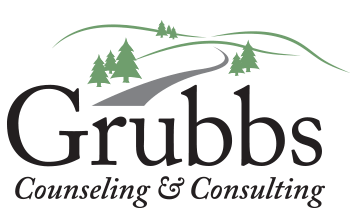Frequently Asked Questions
Grubbs Counseling & Consulting provides a variety of counseling practices based on the individual’s need and desired treatment goals. Our counseling services include outpatient psychotherapy treatment for individuals, couples, and families. Have questions about what we do or how we function? Please check out our FAQ questions below or contact us to ask your own question.
Can seeing a therapist help me?
This question should be asked all the time. In my practice, I feel it is the job of the therapist and the client to discuss the benefits and risks of potential treatment, areas of change desired, along with potential barriers or resistance to planned changes. Our subconscious mind is always working, even while we sleep. Often, becoming aware of our own negative thought cycles creates changes in behavior. At times, we are completely unaware of a scripted response to certain situations we learned long ago, and need to unlearn.
Do you work with couples and families?
Yes, our practice includes work with individuals, couples, and families.
Is what I say confidential?
As licensed professionals, this is a firm and resolute standard in our practice. There are some exceptions to maintaining confidentiality in the client-therapist relationship. These exceptions are always discussed at the first appointment and prior to treatment beginning. Confidentiality is not just a legal and ethical responsibility, but a strong counselor builds a reputation in the community based on this principle.
What can I expect at the first session?
At the beginning of the appointment we will complete some brief paperwork if it was not filled out ahead of time. Afterwards, the first appointment is spent discussing the areas of concern that led to seeking help, personal background, along with specific questions to aid in identifying areas of focus. It is important to find a therapist you feel comfortable working with. Just because a first appointment occurs there is no obligation to remain under our care. If the experiences just didn’t feel right, exploration of other options or alternative therapists is always encouraged.
How long does a counseling session take?
Individual and or joint sessions can range from 45 minute sessions to 60 minute sessions depending on the needs of the client. The initial appointment is usually scheduled for 90 minutes to make time for evaluation and appropriate assessment of the concerns expressed.
How often will I meet with my therapist?
Most people will choose to have a session once a week, however, the recommended frequency of sessions will depend on the therapy you choose to receive. Your therapist will make a recommendation regarding the frequency and duration of visits at the end of the first session.
What could the cost be for a standard appointment?
We are a participating provider with many insurance companies. The specific cost for our clients often depends on what type of insurance plan coverage they have. Finding this information out can be frustrating at times, especially when you just want to get started. At Grubbs Counseling and Consulting we will often check your benefits as well. This helps to ensure your benefits are clearly understood before we bill and save you money if possible. For clients that choose to pay privately our rates can be emailed to you upon request.
When will I know that I am done with therapy?
During the first three sessions, we will create and modify a treatment plan. This plan will have goals we develop as a team and outcomes we want to see as treatment moves along. Therapy should have a beginning, middle, and an end. The treatment plan is a great way to track progress and modify goals and objectives.
What do the credentials LCSW mean?
LCSW: The credentials stand for Licensed Clinical Social Worker.
This level of credentialing can vary from state to state. In the State of Kentucky it means that that I have a Master’s Degree from an Accredited University in Social Work. In addition, completion of 200 hours of clinical supervision and training over a two to three year period under a Licensed Clinical Social Worker, and obtain a satisfactory score on the ASWB National Clinical Exam. The completion of licensure at this level means that my area of expertise is in counseling and psychotherapy.
What do the credentials LCADC mean?
The credentials LCADC stand for Licensed Clinical Alcohol and Drug Counselor.
This level of credentialing can vary from state to state. In the State of Kentucky, it means I possess a Master’s Degree in the Behavioral Health Science Field, completed 2000 hours of work experience with persons diagnosed with substance use disorder, 300 hours of clinical supervision, proof of 180 hours of Kentucky Board approved training, and obtained a satisfactory score on the IC&RC National Exam. The completion of licensure at this level means that my area of expertise is in alcohol and drug counseling as well.
What is EMDR?
EMDR Training Completion – EMDR stands for Eye Movement Desentization and Reprocessing.
There has been significant scientific evidence that the mind attempts to heal itself, much like our physical bodies do when injured. This working process often occurs during our deepest sleep stages. Francine Shapiro created Eye Movement Desensitization and Reprocessing (EMDR) in 1987. Since this breakthrough in therpeutic treatment it has been used to treat Post-traumatic Stress Disorder (PTSD). In addition, EMDR has been used as a therpeutic tool to effectively treat a issues like anxiety-panic attacks, depression, anger, grief-loss, performance anxiety, and family of origin issues.
What insurance companies are you a provider for?
Here is a list of the insurance companies we are contracted to provide services for. At times even though your insurance company may be in-network, the specific plan may not. Please call your insurance company to confirm coverage and benefits as well.
- Aetna
- Anthem
- BlueCross and BlueShield
- Humana
- TRICARE
2018 Holiday Closure Schedule
Our office is CLOSED on the following dates in 2018
Thursday 02/08/2018 through Friday 02/16/2018
Thursday 05/24/2018 through Tuesday 05/29/2018
Wednesday 07/04/2018
Friday 08/31/2018 through Monday 09/03/2018
Monday 10/08/2018
Friday 11/09/2018 through Monday 11/12/2018
Thursday 11/22/2018 through Friday 11/23/2018
Monday 12/24/2018 through Friday 12/28/2018


